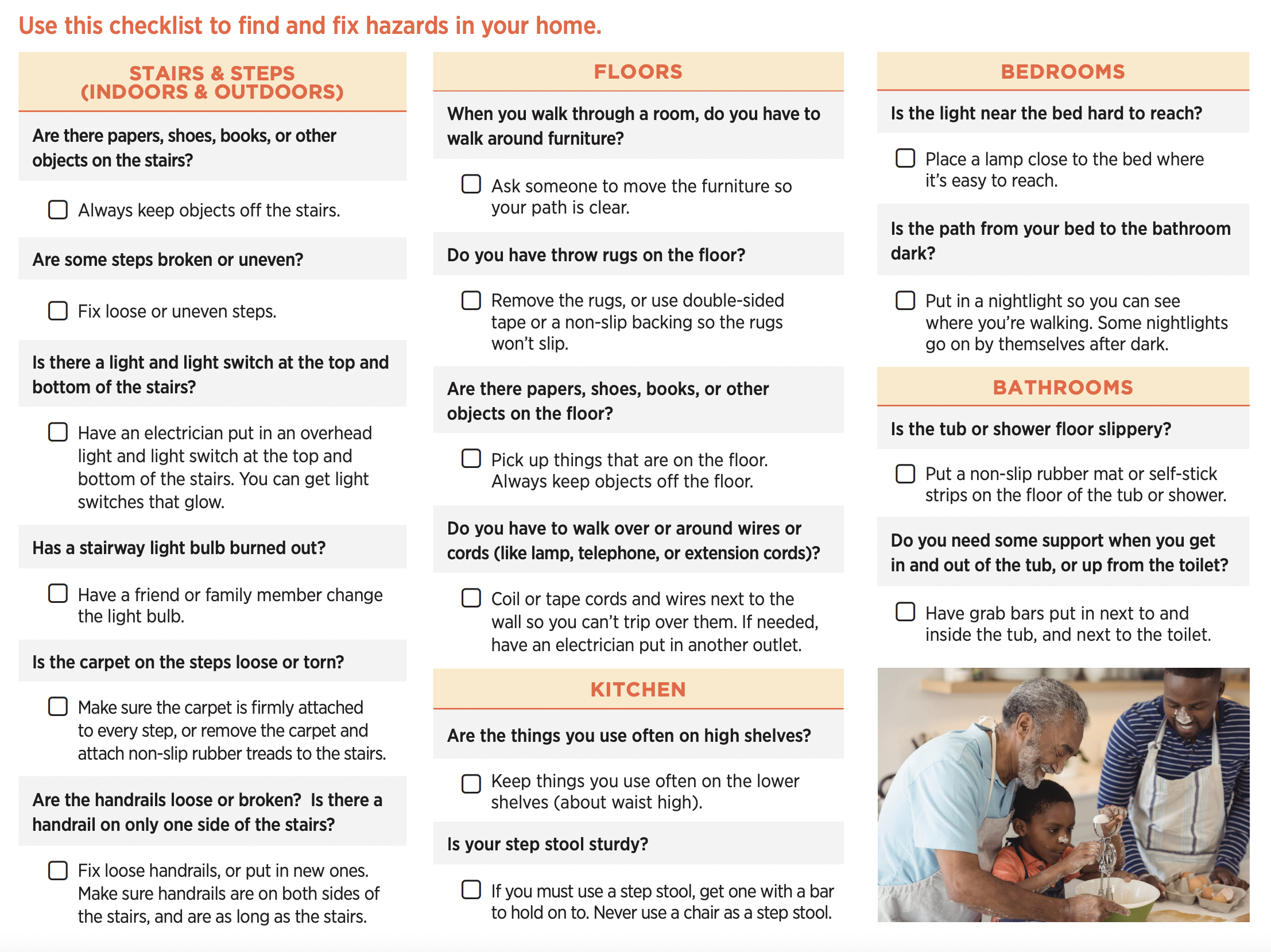Dementia Fall Risk Things To Know Before You Buy
Some Known Factual Statements About Dementia Fall Risk
Table of ContentsDementia Fall Risk Things To Know Before You BuyNot known Details About Dementia Fall Risk The Greatest Guide To Dementia Fall RiskThe Basic Principles Of Dementia Fall Risk Dementia Fall Risk - An Overview
Evaluating loss risk aids the whole medical care group create a more secure setting for each and every patient. Make sure that there is a marked area in your medical charting system where staff can document/reference scores and record relevant notes connected to drop avoidance. The Johns Hopkins Loss Danger Assessment Device is one of several devices your staff can make use of to help prevent adverse medical events.Person falls in healthcare facilities prevail and devastating unfavorable occasions that linger regardless of years of effort to decrease them. Improving interaction across the examining registered nurse, care team, client, and person's most involved close friends and family might enhance fall prevention efforts. A team at Brigham and Female's Hospital in Boston, Massachusetts, sought to develop a standardized loss prevention program that centered around enhanced communication and person and family members interaction.

The innovation team stressed that successful execution depends upon person and personnel buy-in, integration of the program right into existing workflows, and integrity to program processes. The group noted that they are facing just how to ensure connection in program application throughout durations of crisis. Throughout the COVID-19 pandemic, for instance, a rise in inpatient falls was connected with constraints in individual engagement in addition to limitations on visitation.
A Biased View of Dementia Fall Risk
These cases are commonly considered avoidable. To apply the intervention, organizations require the following: Access to Fall suggestions resources Autumn pointers training and re-training for nursing and non-nursing team, consisting of brand-new nurses Nursing workflows that enable individual and family involvement to carry out the drops assessment, ensure use the prevention plan, and conduct patient-level audits.
The results can be very destructive, frequently speeding up person decline and causing longer health center remains. One research estimated stays increased an added 12 in-patient days after a patient loss. The Loss TIPS Program is based on interesting people and their family/loved ones across 3 major procedures: assessment, customized preventative treatments, and auditing to make sure that patients are participated in the three-step fall avoidance process.
The client analysis is based upon the Morse Autumn Range, which is a validated fall threat evaluation tool for in-patient medical facility settings. The scale includes the 6 most typical reasons individuals in healthcare facilities fall: the client fall history, risky problems (consisting of polypharmacy), usage of IVs and various other external devices, psychological condition, stride, and movement.
Each risk factor links with several workable evidence-based interventions. The nurse produces a plan that incorporates the treatments and is visible to the treatment group, individual, and family members on a laminated poster or printed aesthetic aid. Nurses create the plan while meeting with the client and the person's household.
Not known Factual Statements About Dementia Fall Risk
The poster works as an interaction tool with various other members of the individual's care team. Dementia Fall Risk. The audit part of the program includes analyzing the individual's knowledge of their danger factors and avoidance plan at the unit and hospital degrees. Nurse champions perform at the very least five private interviews a month with people and their families to look for understanding of the autumn avoidance strategy

A projected 30% of these drops outcome in injuries, which can range in seriousness. Unlike other damaging events that call for a standard medical action, loss prevention depends very on the needs of the patient. Including the input of people that know the person ideal allows for better modification. This strategy has proven to be more effective than loss avoidance programs that are based mainly on the manufacturing of a risk score and/or are from this source not customizable.
What Does Dementia Fall Risk Do?

Based on bookkeeping results, one website had 86% compliance and 2 websites had more than 95% compliance. A cost-benefit evaluation of the Autumn suggestions program in 8 healthcare facilities approximated that the program cost $0.88 per patient to carry out and led to savings of $8,500 per 1000 patient-days in straight costs connected to the avoidance of 567 drops over three years and 8 months.
According to the advancement team, companies thinking about executing the program ought to perform a preparedness evaluation and drops prevention voids analysis. 8 In addition, companies should guarantee the essential facilities and operations for application and develop an execution plan. If one exists, the organization's Loss Avoidance Job Force must be included in preparation.
10 Easy Facts About Dementia Fall Risk Described
To begin, companies should make sure conclusion of training modules by nurses and nursing assistants - Dementia Fall Risk. Health center team should evaluate, based on the address demands of a health center, whether to utilize an electronic wellness record hard copy or paper variation of the loss prevention strategy. Implementing teams ought to recruit and educate nurse champs and establish procedures for bookkeeping and reporting on autumn information
Personnel require to be associated with the process of upgrading the process to involve people and family in the assessment and avoidance plan process. Systems must remain in location to ensure that units can understand why an autumn occurred and remediate the reason. More particularly, nurses must have networks to supply continuous comments to both team and system leadership so they can adjust and boost fall prevention workflows and communicate systemic problems.